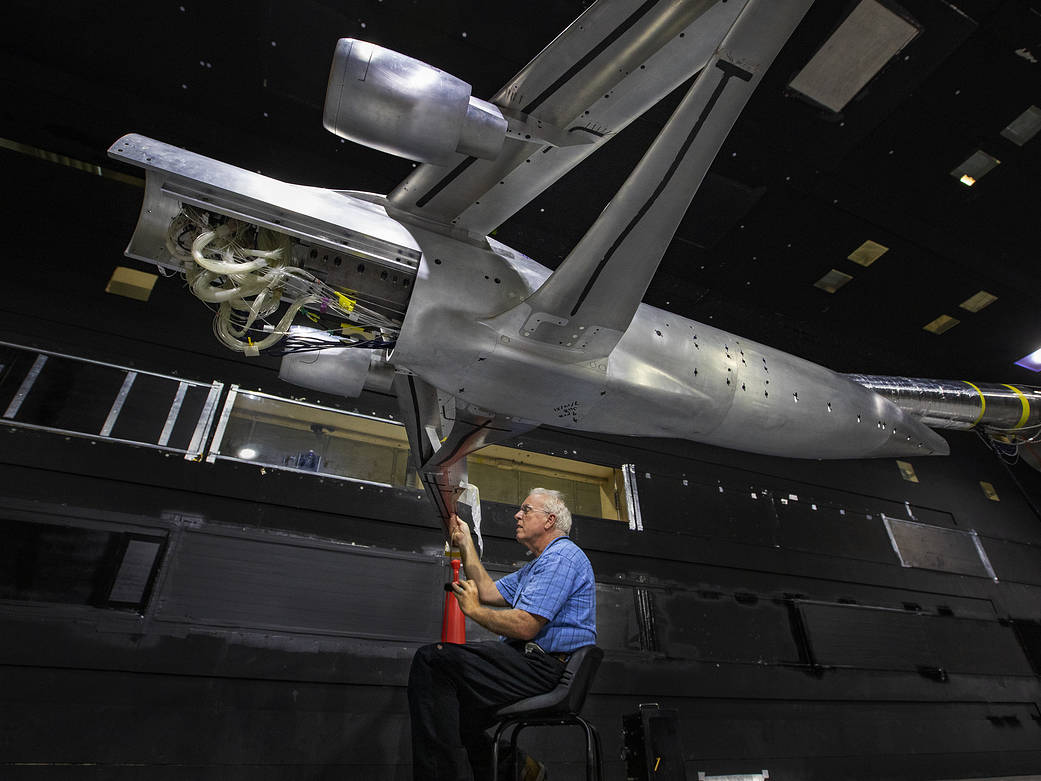Instrumentation technician Michael Hodgins performs installation measures on the trans-sonic truss-braced wing (TTBW) model at Langley Research Center’s 14×22 subsonic wind tunnel. The unique design of the aircraft’s wings reduces drag during flight, which in turn reduces fuel consumption by up to 10 percent. This concept is part of an ongoing initiative by NASA, industry partners, and academia to make the future of aviation more environmentally friendly through the Sustainable Flight National Partnership (SFNP). The SFNP will expand research for sustainable aviation by developing and testing new technologies for aircraft, new automation tools for greener and safer airspace operations, and sustainable energy options for aircraft propulsion. The TTBW will undergo a variety of aerodynamic testing as researchers continue to test key flight components such as increased lift and reduced drag.
Image and Text Credit: NASA/Langley Research Center/David Meade

























